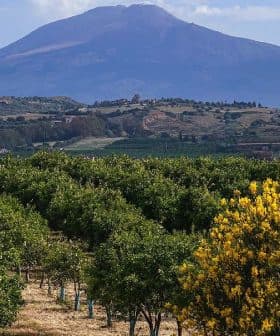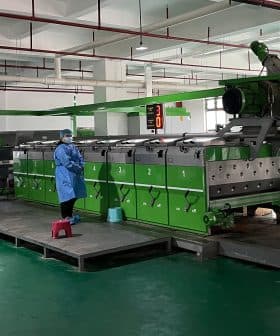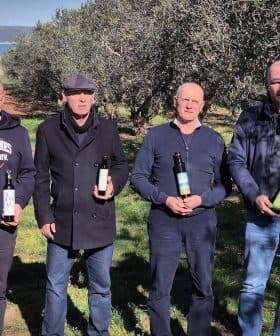World Olive Oil Production Drops Sharply
The International Olive Council said total olive oil production will drop by fourteen percent.
The International Olive Council predicts a 14% decrease in world olive oil production for the 2016/2017 season, with European members expected to see significant drops in production. This decline in production is leading to an increase in olive oil prices, causing a one percent decrease in world olive oil consumption.
World olive oil production is expected to go down by fourteen percent during the 2016/2017 campaign, according to the International Olive Council (IOC).
Members of the IOC participated to the 18th meeting of the organization’s Economic Committee in Madrid between November 22 and November 25 to discuss olive oil production, prices, and global market trends.
See Also:Complete Coverage of the 2016 Olive Harvest
The IOC’s production forecasts state that world olive oil production could drop by as much as fourteen percent, reaching 2,713,500 tons, with members of the IOC generating 2,519,000 tons.
European members of the IOC are expected to produce 1,923,000 tons during the 2016/17 season, a 17 percent decrease compared with the last campaign.
Spain is expected to see its production decrease by 6 percent (to reach 1,311,000 tons), Greece should experience a 19 percent decrease (260,000 tons), Italy a whopping 49 percent decrease (243,000 tons), and Portugal’s will drop 14 percent (93,600 tons).
Italy has faced severe climate conditions and pest invasions in 2016. Other European countries have been hit with drought and pests as well.
Production is also expected to drop in non-European members of the IOC, namely in Tunisia, Morocco, Algeria, Jordan, Lebanon, Argentine, and Libya. On the other hand, production is expected to rise in Turkey (+24 percent), Egypt (+8 percent), Israel (+7 percent), and Albania (+5 percent).
The IOC report also offers an analysis focusing on the evolution of olive oil prices.
In Spain, a kilogram of extra-virgin olive oil cost €3.37 ($3.59) as of late November, a 10 percent increase compared with last year. It cost respectively €5.75 ($6.13) in Italy, €3,46 ($3.69) in Greece, and €3,68 ($3.93) in Tunisia (which represent increases of 70, 21, and 12 percent respectively). Prices have risen sharply during the last few weeks.
World olive oil consumption is expected to go down by one percent in 2016/2017 to reach 2,904,000 tons. The drop in yield levels implies an increase in prices, which leads to a decrease in consumption.
Last month, the IOC participated in the 22nd session of the Conference of the Parties to the United Nations Framework Convention on Climate Change (COP22) that was held in Marrakech, Morocco from November 7 to November 18.
In a conference call with its members, the IOC showcased numerous studies that proved that “olive growing has positive effects on the environment and that the adoption of appropriate agricultural practices helps to increase the capacity for atmospheric C02 sequestration in permanent vegetative structures (biomass) and in the soil.”
“A scientific consensus has now been reached that olive trees have a positive carbon balance and that they have a real positive impact and offer a real environmental service to society,” the IOC said.









